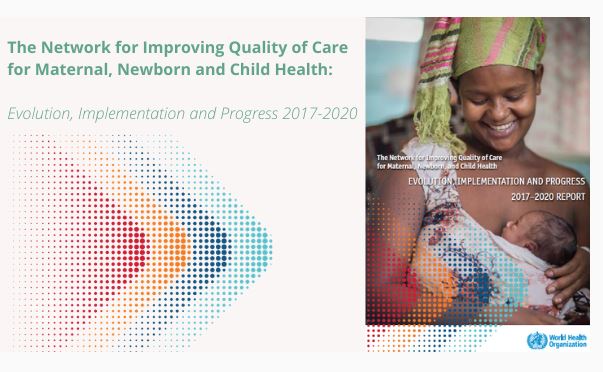
The World Health Organization has recently released the first progress report of the Network for Improving Quality of Care for Maternal, Newborn and Child Health which documents the evolution and lessons learned from improving Quality Care for MNH over the period 2017-2020.
The Quality of Care Network report: Evolution, Implementation and Progress 2017-2020 provides a critical and timely account of how countries are progressing in achieving the Network goals, and identifies emerging lessons that need to be considered by countries interested in implementing quality care at scale.
This report reviews progress in 10 countries participating in the Network for improving quality of care for maternal, newborn, and child health. It also includes a set of related briefs: a summary brief, a knowledge brief on leadership, a knowledge brief on action, and a knowledge brief on learning and accountability. Based on learning in the first three years of the Network, the report outlines critical levers of change for improving quality of maternal newborn and child health care at scale (categorized under the four strategic objectives of the Network):
Leadership
- It takes a whole health system to improve quality of care
- Government leadership and long-term commitment is a prerequisite for success
- Quality of care requires dedicated and sustained investment and partnership
Action
- Health system contexts impact the pace of quality of care development, adaptation and implementation
- Building quality improvement capabilities is necessary for sustaining quality of care provision
Learning
- Designing, implementing, and monitoring a comprehensive and adaptable quality of care program at the district or sub-national levels is critical
- Documenting and sharing lessons from quality of care initiatives can help build more effective programs and it requires trust
- A facilitated network offers a valid platform for rapid learning and accelerated progress
Accountability
- Engaging communities and stakeholders in designing and implementing quality of care for MNH programs paves the way to progress and ensures accountability for quality of care
- Investing early and intentionally in the development and strengthening of data systems for quality of care is essential
- Demonstrating impact of quality improvement activities takes time
